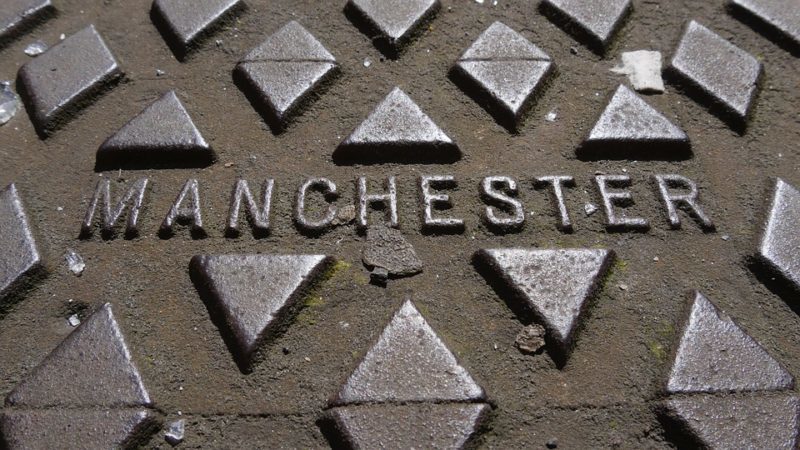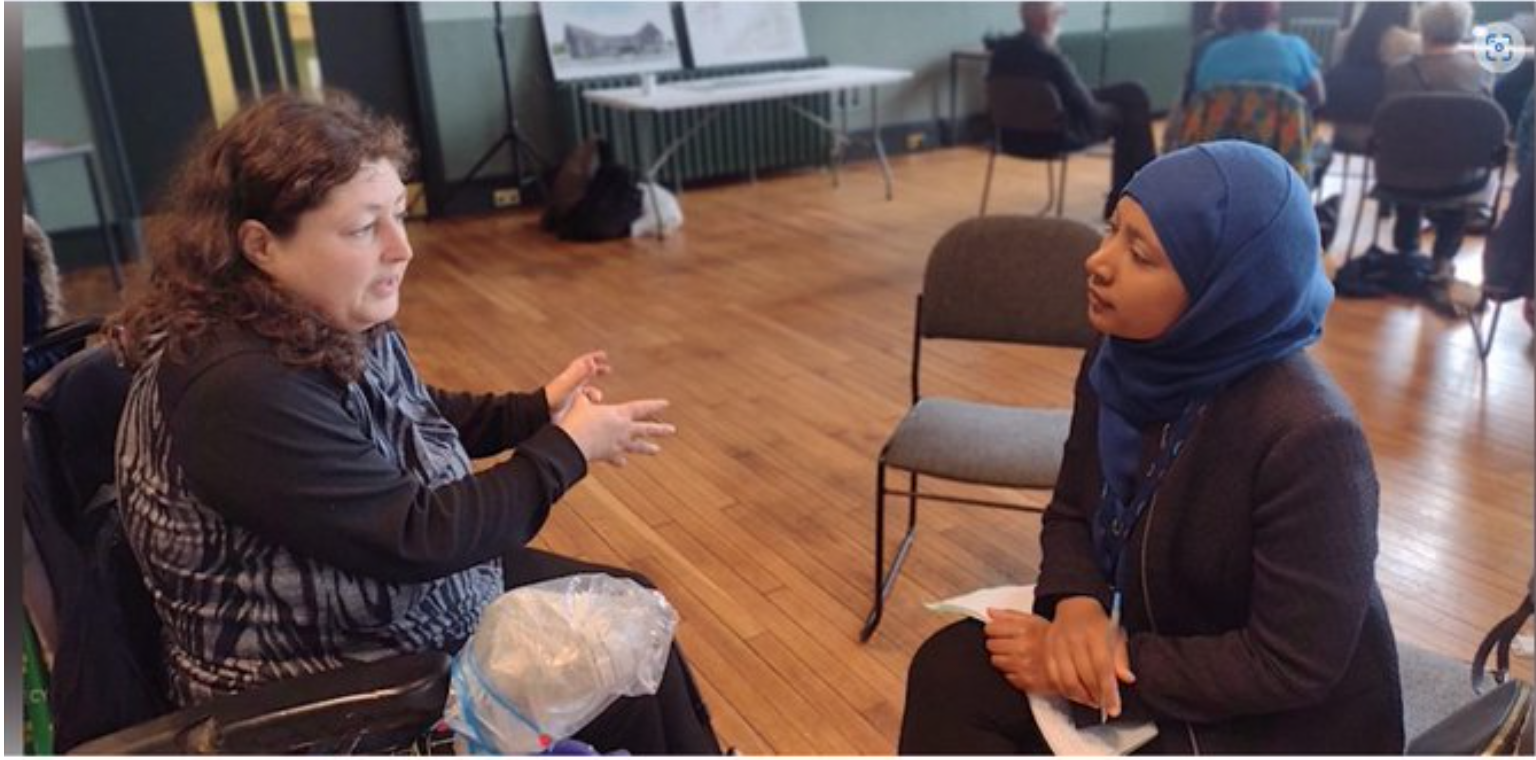By Dr Morag Rose
The policies that shape the city centre send a message about who and what is welcome. These signals may be subtle but they shape the environment we live in and how we feel about it. The architecture and physical environment embodies who and what we value too. A walk around Manchester, and other UK city centres, will reveal a plethora of “defensive” features such as newly erected enclosures blocking access to shelter, seats that cannot be slept on and spikes to prevent loitering. The outcry over the latter when they appeared outside Selfridges in Manchester demonstrates how public pressure can have an impact. The PSPO (Public Space Protection Order) proposed for Manchester is part of a wider context that underpins this cruel and unjust treatment of homeless people.
A desire to punish or expel people experiencing poverty and homelessness is not a new phenomenon. Frequently homeless people have been dehumanised, criminalised or viewed as a threat for the “offence” of not owning property or having somewhere to sleep. The 1824 Vagrancy Act saw “incorrigible rogues” flogged, imprisoned or deported. It was a reaction to moral panic provoked by the chaos and rupture of the Industrial Revolution, but this archaic law still resonates. The mills and factories of Manchester meant we were right at the heart of this turmoil. Although much has changed, homeless people are still frequently framed as a problem in themselves rather than as a symptom of a inequality, exploitation and society’s failure to care.
Today the dominant rhetoric is about place management and keeping the city safe and clean. This narrative was popularised by the Blair government who ushered in a range of neoliberal policies. These privatised public land and promoted public-private partnerships which saw profit making as central to the function of cities. Civil orders to target street crime effectively led to the criminalisation of begging. The later coalition government built on these with an enhanced range of “anti-social behaviour” initiatives, including the 2014 Anti-social Behaviour, Crime and Policing Act. This enabled the establishment of PSPOs and on-the-spot fines for “nuisance” behaviour. Ostensibly these measures appear harmless; who could object to creating a more pleasant urban environment?
However these policies should ring a series of alarm bells. They criminalise people for actions which are not otherwise illegal and impose fines on those who are unable to pay them often creating a vicious cycle. They also localise and personalise issues such as the breakdown of support systems and lack of affordable housing. Wider civil liberties issues are also raised, such as who decides who and what is a “nuisance”. Exclusion orders and suchlike do little to solve underlying issues, merely pushing people and their problems out of sight. Their frequent absurdity was highlighted by comedian Mark Thomas and his swearathon outside The Lowry Centre in Salford where a PSPO means “offensive language” can land you a fine.
This isn’t the first PSPO in Manchester. In 2017 part of the Rochdale Canal Towpath, known as the Undercroft, was gated between 10pm and 7am. Although public outcry was muted there were a series of objections. The first of these was on the fundamental issue of rights of way and loss of public space. The second was that the closure was not the best way to tackle homophobic hate crime or safety along the canals. There was a suggestion by some that the action had a whiff of homophobia and stigmatisation about it. They felt the main objective was to protect the sensibilities, and financial interests, of new hotels and offices being built in the vicinity. The third objection was that this could set a precedent for more sweeping PSPOs aimed at sanitising the city centre and pushing uncomfortable truths out of the site of good consumers.
This clearly resonates with the latest PSPO which is proposed for Manchester City Centre, and which has already been explored in other blogs on this site. I raised several of my particular concerns in a tweet to the council, their reply gives some insight into their agenda. The first concerns the restriction on “occupying a tent or other temporary structure in a manner likely to create a health and safety risk for other people”. I was curious to learn whether bargain hunters or gig goers camped out in anticipation of sales or spectacles would be at risk of a fine. They are not. Within this PSPO tents are only viewed as a problem if they are unhygienic or attract vermin and the inference here is clear.
I wondered too whether public toilets would be reopening because despite legislation against “Urinating or defecating in a public space (except a toilet)” the physical need for ablutions won’t go away. (Incidentally, lack of adequate, safe public toilet facilities has an impact on many people and can prevent them going into the city centre). The answer again, predictably, was no.
I also asked about advertising boards, inspired by the prohibition on “Obstructing a building entrance or exit, stairwell or highway after being asked to move by an authorised officer”. This a subject dear to my heart. Lots of my work is concerned with preserving streets as place for everyone, for encountering difference and enabling everyone to move around safely and easily. My research* has included talking to women about their experiences walking in Manchester and they told me about poor pedestrian infrastructure such as paths blocked by cars, A-boards and street furniture, material factors such as broken pavements and a general lack of accessible design. These were all everyday barriers to their free movement within Manchester. No-one said homeless people were an obstruction or a threat, rather they felt compassion and shame that anyone should be sleeping on our streets.
Importantly there is already legislation in place to tackle dumping of industrial waste and blocking fire escapes, these are problems that need tacking but existing law should be perfectly adequate. A PSPO prohibiting temporary structures and obstruction on health and safety groups is sufficiently vague to invite the possibility of criminalising peaceful protest. For example there nothing to stop this being applied to the school students who blocked the trams as part of the recent Youth Strike 4 Climate demonstration. It would be naive at best to not consider this potential.
At the heart of the PSPO debate is a question about who, and what, we want Manchester to be for. If we want a city that is compassionate, open, diverse and truly radical then exclusion and putting up barriers can never be answer. We must ask ourselves what values we want our public space to embody and whether we truly believe the city is for everyone.
* publications forthcoming, feel free to contact the author for more information
31 March 2019






